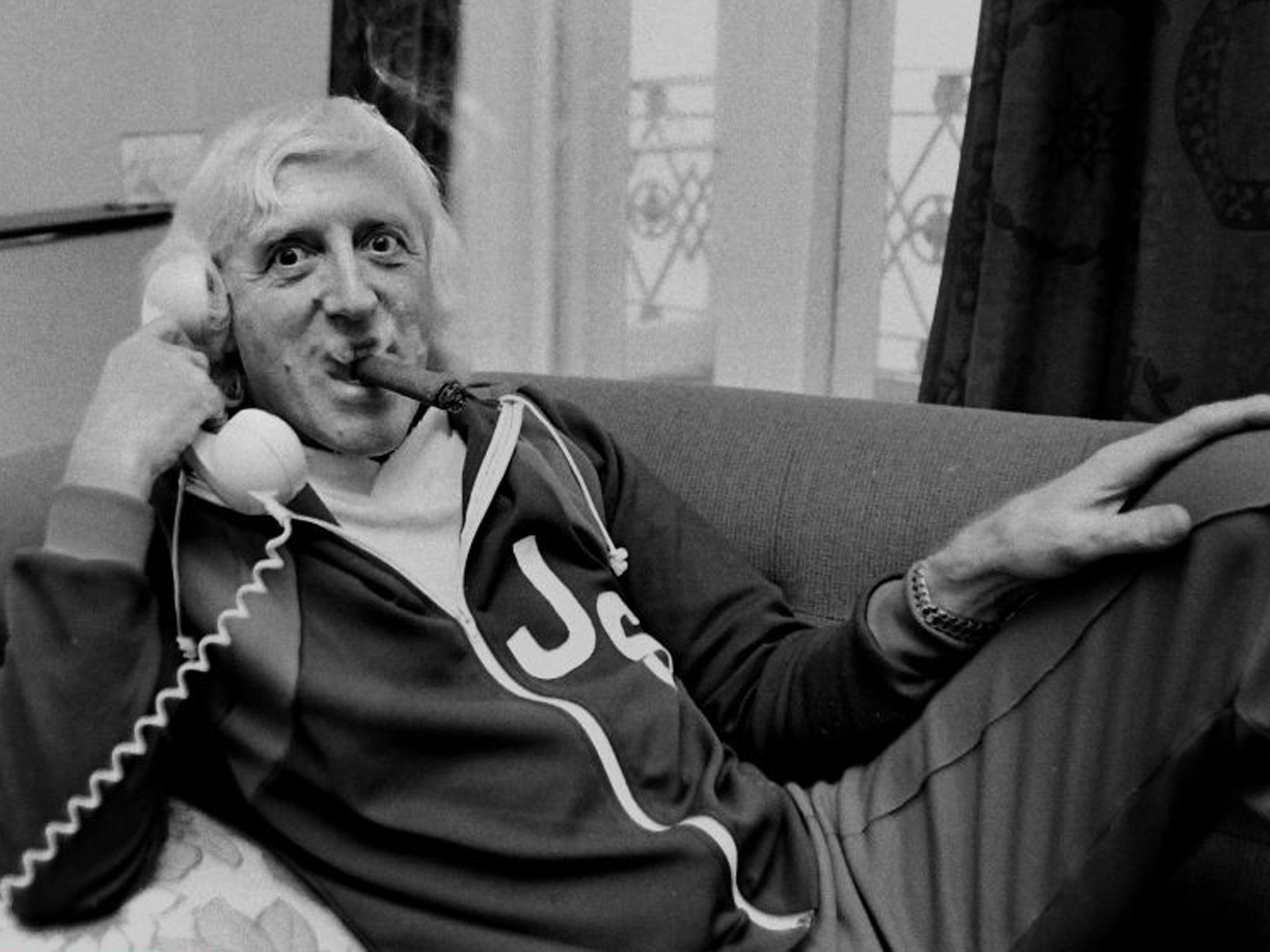Why must you and I pay for Savile’s crimes?
No good can come from the slew of lawsuits and payouts sure to follow


Your support helps us to tell the story
From reproductive rights to climate change to Big Tech, The Independent is on the ground when the story is developing. Whether it's investigating the financials of Elon Musk's pro-Trump PAC or producing our latest documentary, 'The A Word', which shines a light on the American women fighting for reproductive rights, we know how important it is to parse out the facts from the messaging.
At such a critical moment in US history, we need reporters on the ground. Your donation allows us to keep sending journalists to speak to both sides of the story.
The Independent is trusted by Americans across the entire political spectrum. And unlike many other quality news outlets, we choose not to lock Americans out of our reporting and analysis with paywalls. We believe quality journalism should be available to everyone, paid for by those who can afford it.
Your support makes all the difference.No sooner had the official verdict been pronounced on Jimmy Savile – one of the most prolific sexual predators, if not the most prolific sexual predator, of his time – than we had the unedifying spectacle of compensation lawyers rubbing their hands and the urgent sound of ringing tills.
It was predicted that the BBC, the NHS, Stoke Mandeville, Great Ormond Street and whichever other institutions might have been implicated would face demands for payouts running into millions of pounds.
Of course, Savile’s extracurricular activities were reprehensible, not to say illegal. Of course, he should have been brought to book in his lifetime. Of course, the hospitals, children’s homes and the good old BBC were wrong to give him such free rein. Of course, the police should have taken the (few) complaints seriously. Nor is it any justification to argue that these were more innocent times, or that those with the power to stop him were star-struck.
But what possible good can come of lawsuits and payouts? Those who will end up doing the paying receive their funds from the taxpayer, the licence-payer and charitable donors. Any money paid out by Stoke Mandeville or Great Ormond Street is money that can no longer benefit their patients. Any compensation agreed by the BBC is money no longer available for public broadcasting. Reduce it to the basics, and what is happening is that money which you and I pay – compulsorily or voluntarily – will be diverted from the common good to a few aggrieved individuals.
The person who should have done the paying, if there was any to be done, was Jimmy Savile. He is now dead, and his estate went to the charities he supported. Is it too much to ask those he damaged to regard this as their compensation and be content with that? What his victims ought to receive is a proper apology from institutions that should have been more vigilant. But the reason all the apologies thus far have been so mealy-mouthed is the fear that admission of fault will precipitate massive payments. This is a vicious circle that goes the wrong way round.
Something similar applies to hospitals generally. No one would question the duty of a hospital that makes a mistake – and hospitals do make catastrophic mistakes – to compensate those they have injured. But why, as appears to be happening in the wake of scandals such as that at the Mid-Staffordshire Hospital, do relatives of those who were mistreated and subsequently died apparently feel that compensation is due – not for the loss of a breadwinner (that would be obligatory), but for someone else’s suffering? Some will argue that unless institutions are made to feel the pain in their purse, they will have no incentive to mend their ways. But the money they are paying out in compensation is not their money. It is our money, and it should be used to treat the patients of today, not trying to salve the grief of yesterday’s bereaved.
Join our commenting forum
Join thought-provoking conversations, follow other Independent readers and see their replies
Comments